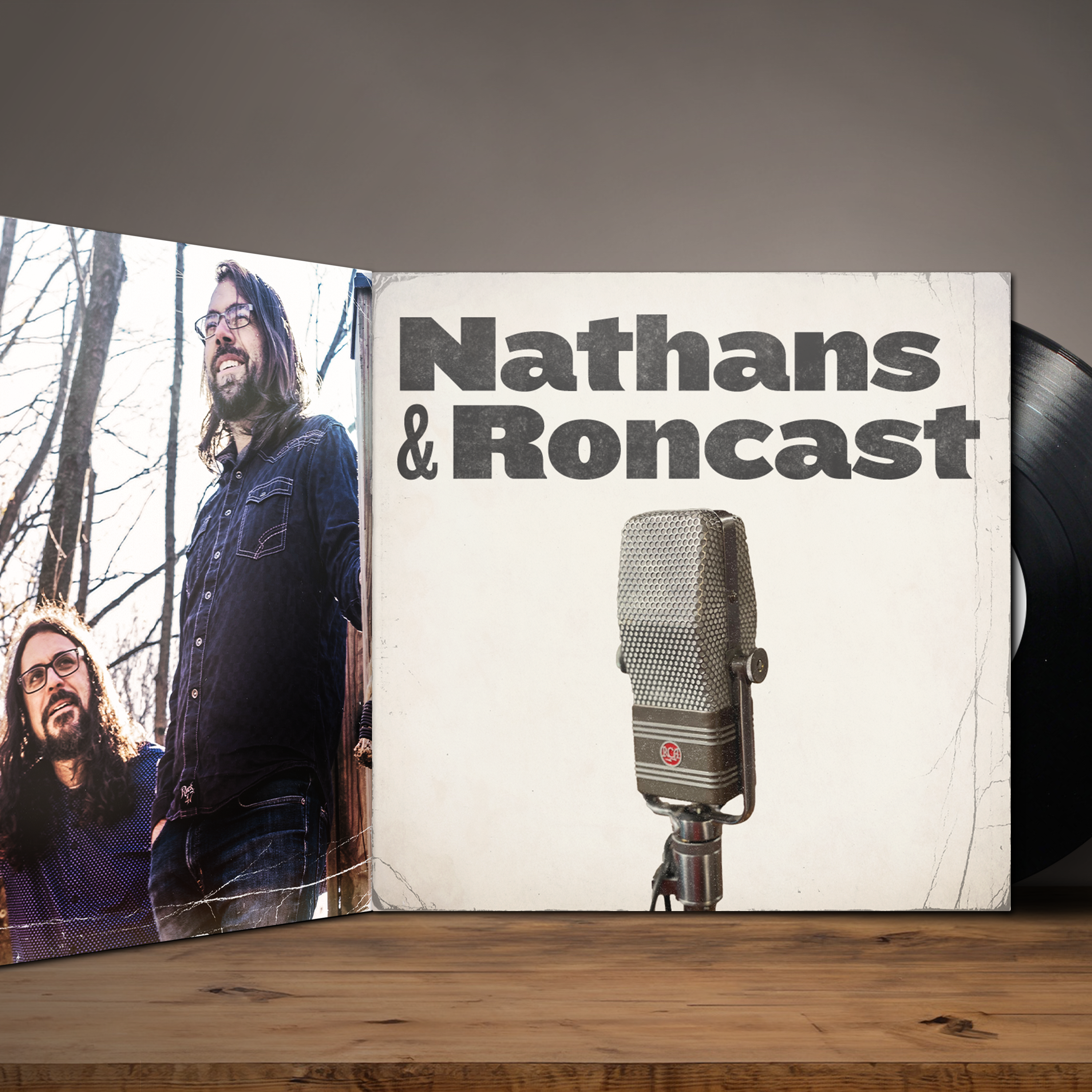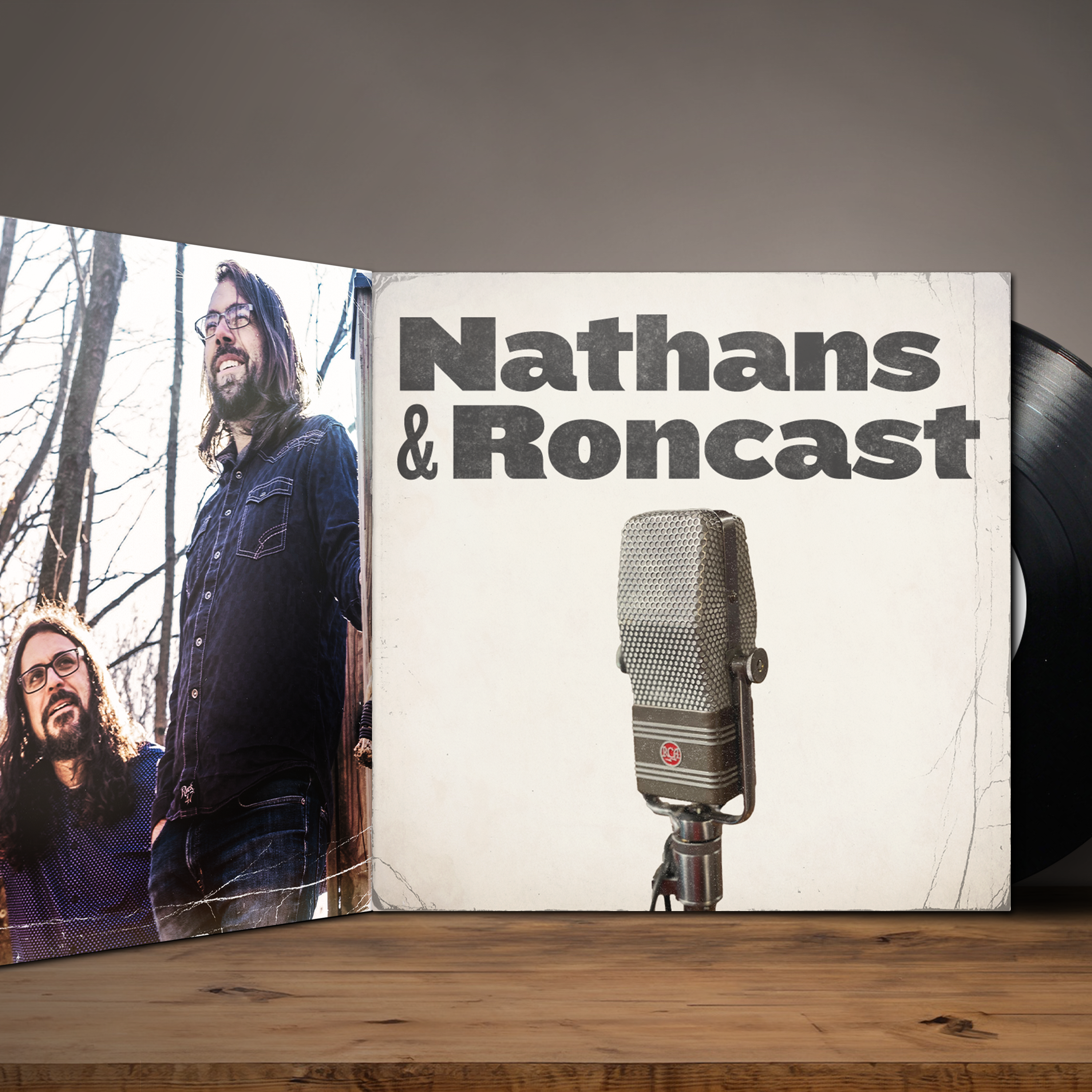Episode Transcript
[00:00:00] Foreign hi, this is Aaron Nathans from the Nathans and Roncast, the podcast about the songcraft and musicianship behind the songs we love. And if you're in the Chicago area on Saturday, March 8, please join us at St. Tim's in Skokie where we will perform A show that will be broadcast live on WFMT Radio will also be in Columbus, Ohio on March 29th and Cincinnati on March 30th. Details can be found at our website, nathans and ronstadt.com I sat with my knee propped up on the table in unfamiliar position, my Washburn acoustic guitar sitting heavy in my lap. My pulse was pounding, knowing there were 15 songwriters staring at me amid the smell of malt hops, yeast and burgers. Before me was the sheet of paper with my original song on it. It had some suspended chords and jazz chords, something a little different than the folkier fare I had heard from the others that night. I felt a hesitation, a mix of bravado, imposter syndrome and performance anxiety before my quaking voice began singing the words and my sweaty fingers tried to stay with the chords. This, in the back room at J.T. whitney's Brew Pub in Madison, Wisconsin in the fall of 2002 was my first experience at a song critique. Finding this community and working to recreate it on the East Coast a decade later became essential as I increasingly identified as a performing songwriter. What brings this community together and keeps us coming back for more is the search for the perfect song. When one of us comes close, we all feel that tingle in our spines that tell us something special has just been born. Were all cheering for each other. When that first song of mine was over, I caught my breath, picked up my pen and began writing down what the others had to say. Some of the criticism stung. You're singing too high, someone said. But I got a vibe in the room that people thought the song was good and they wanted to hear more. So I brought another song the next month, and another, and another, and my songs got better and my skin got thicker and my ear became attuned to what and whose advice to take. A few weeks earlier, I had been walking through the local natural foods market when I saw a sign for the Madison Songwriters Group songwriting. I thought I could do that, even though I'd never seriously tried before. The leader of the group was Eric Hester, a red bearded songwriter who had himself come up through the Portland Songwriters association in Oregon. Eric taught us the basics of songwriting, and I've gotten a lot of mileage out of those suggestions. Being A part of the Madison songwriters group gave me early performance opportunities. But more importantly, I met a whole group of 20 and 30 somethings who, like me, had learned enough about our chosen instrument to be dangerous. We became good friends and each other's collaborators and boosters that made it really hard to leave Madison. But I was a newspaper reporter by day, and it was the life of a reporter to seek out bigger, better opportunities every few years. So when my wife Deborah and I left Madison for Delaware in 2006, I wondered whether I would ever find a music community like that again. At first, I joined with a few Delaware songwriters who held a small, warm, private gathering in the living room of my friend and local legend Nick Everett. But I was looking to recreate the bigger, more democratic vibe that we had in Madison. I recalled a few years earlier having met bossa nova pianist songwriter Avi Wisnia at a songwriting contest in New York. We bonded over our shared Jewish heritage, and I got the intuitive sense that as a sometime summer camp song leader, he was good at creating community. Six years later, in 2013, after Avi and I had both independently moved to the Philadelphia area, there we were sitting with a few other songwriters in Zoe Mulford's house in Swarthmore, holding the first meeting of what would become the Philly Songwriters Circle. We continued to hold the monthly gathering in Avi's living room in South Philly. Despite low turnout, we were getting usable feedback on our songs, and that was enough for us to keep it going. Avi moved to a smaller place, so we bounced around locations until 2017, when two fortuitous things happened. The first was that our private Facebook group began inviting area songwriters to ask to join. Previously we'd been lucky to have seven people there. Now we were getting a rotating cast of reliably between 15 and 25 people, and today we have more than 600 people on our Evite list. I'm pleased to see how diverse the group has become in age, background and musical styles. The other change was that one of our members, Megan Carey, offered her home as a location where we could meet, and we began gathering in her cozy living room, trading songs and critiquing late into the night. Eventually, Megan, a dynamic and prolific presence in the Philadelphia music scene, would become the third leader of the group. A song critique is both a musical and a social experience. We make good friends there. We learn about new acts. Collaborations are born over wine in the kitchen. It is also a democratic experience. This is not a performance. The better your song, the more finished it is. The less appropriate it is for this setting that tends to put accomplished performers and newbies on relatively equal footing. The sound of a person's voice and their skill in playing the guitar or piano is meaningless if they can get the song across. Do we like the melody and the chords, or increasingly the beats? Is it too long? Is it unfinished? Does the bridge that's the middle section serve the song? I look for songs that give me a sense that I've been taken on a journey. And most importantly, does the song make sense? For instance, Michael Ronstadt and I wrote a song, hello World, about Professor Brian Kernahan's computer program for beginners. Although the song is from the point of view of the program itself, Megan gently pointed out to me that in the final verse I had gotten the pronouns wrong. The line needed to be I am its soul, as in the introductory computer program, was the soul of every program that came after. I like to think that the Philly Songwriters circle is a nurturing experience, and the warm spirits of my two co leaders, both more natural extroverts than me, help set the tone. We ask our members to be constructive with their comments, or if they have nothing to say, say nothing. Sometimes a member has recently lost a loved one or our community has suffered a more communal loss. We acknowledge the pain without trying to fix it. Because by listening to someone's song or acknowledging their comments, you are showing support. And it is my goal that when the night is over, everyone feels heard. I like to say that those 10 minutes of feedback you get on your song are a gift. If the voice you hear most often during those 10 minutes is your own, you're doing something wrong. Because how can you feel heard if you won't stop talking? Nevertheless, I tend to cut first timers some slack, knowing they will probably talk during their time anyway. That's because I remember what it was like to be the nervous new guy at the table, wondering what everyone else will think and whether I'm really worthy of calling myself a songwriter. I remember not knowing yet that I had found my people. Thanks for listening. Talk to you soon. Peace it.


